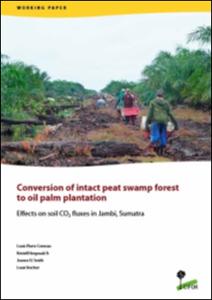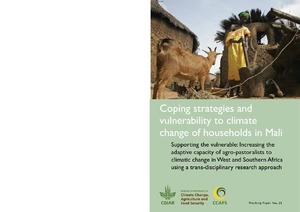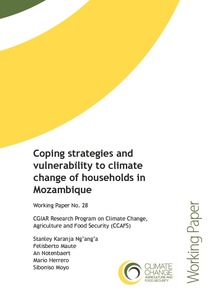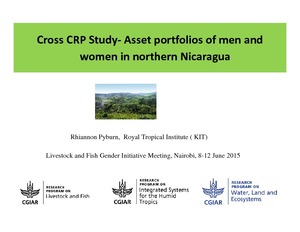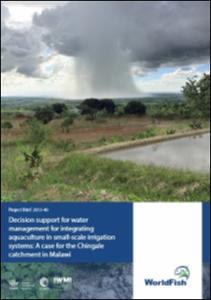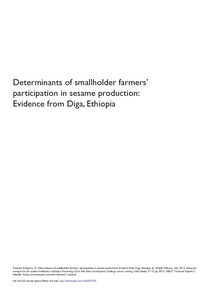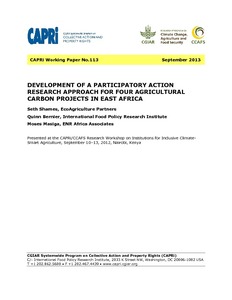Conversion of intact peat swamp forest to oil palm plantation: effects on soil CO2 fluxes in Jambi, Sumatra
Tropical peatlands are among the largest pedologic pools of organic carbon. This study compared soil CO2 fluxes in an intact peat swamp forest, a transitional logged drained forest and an oil palm plantation located on the same alluvial peat plain (peat dome) in Jambi, Sumatra, Indonesia. Dynamic closed chambers were used to measure soil CO2 efflux from January to September 2012. Chambers were placed in pairs, with one close to a tree/palm and the other at mid-distance to the next tree/palm.

